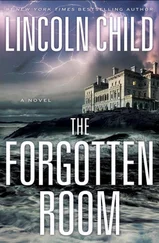Whatever space Geronima would have needed to find a way to face what she had done was not provided in prison. Prison was a place where you had to be strong to get through each day. If you thought about some awful act you’d committed, every day, in graphic detail, enough to prove to a parole board that you had insight, the proverbial insight they wanted, needed, to let you go home, you might lose your mind. To stay sane, that was the thing. To stay sane you formed a version of yourself you could believe in.
And if she did show insight, tell them what was on her mind the day she killed her husband, why and how she did it and what she felt after, excitement, guilt, denial, fear, revulsion, if she showed the board how honest and precise she could be in her knowledge of her crime and why she committed it, if she spoke openly about the impact it had on her victim and on others, on society, if she trotted out the whole horror of it, she would, at the same time, freshly reactivate for the parole board all the reasons why they had wanted to lock her up. You could not convince them. There was no way to win.
Just let her go home. Free Geronima.
But the contradiction, that Geronima faced the parole board and said, “I’m innocent,” while her advocates outside said, “She’s done her time. She is no longer a threat”: that bothered Gordon.
Still. Geronima, and Sanchez, and Candy, all of them were people who suffered and along the way of their suffering they made others suffer, and Gordon could not see that making them suffer lifelong would accrue to justice. It added new harm to old, and no dead person ever came back to life that he had heard about.
———
Alex had been calling, e-mailing, but Gordon had nothing to say to him because all he thought about was women in prison and it wasn’t fun conversation. He was in some kind of exile.
He felt hopeless as he sat in Baressi’s and envied the others at the bar, men in construction and farming, who made it seem as if the Central Valley was not about prison, and for them it wasn’t.
“Aw, come on, there’s plenty of hope,” Alex might have rejoined, playing Kafka, “no end of hope, but none for you, Gordon.”
There was a new singer on the piano. She was good, or maybe just Stanville-good. Gordon got a bit drunk without meaning to, walked over and put a twenty-dollar bill in the big brandy snifter, the international standard piano-tip container.
“Would you like anything special?” Her voice was happy and light.
He could not think of a single song to request. He’d tipped her because he could. “Sing your favorite? What you sing alone, when no one can hear.”
“ ‘Summertime,’ then,” she said without a pause.
Walking back to his seat, he wondered if asking her to sing for a stranger what she sang in private was creep territory. Some people violate others regularly as the natural course of the day, of life. He knew this. He was not those people. Still, he wondered.
As she sang, he understood that whether or not it was her private song, she gave him nothing. She was performing. She was a performer by profession. She sang “Summertime,” and Gordon was swept away by the passionate range of her mediocre voice.
———
“I’m sorry about your fiancé,” he said one night as Romy Hall lingered after class. He was stacking photocopies in an unnecessarily fastidious way to draw out their few minutes together, before a guard oversaw the students’ transfer through work exchange.
“What happened?” It was easy, he found, to affect the concerned tone of an advisor, when really he was fishing for information, to know if there were competitors.
“He wasn’t my fiancé. And he’s not dead. He moved on.”
She said there were women on her unit who got married to men they met through the mail. “Jimmy wasn’t a loser like that,” she said. “He had a life. I’m sure he’s out there living it.”
She made fun of the crafting craze in prison, but said it was good to work with her hands. She was doing jewelry, she told him, in explanation for what she asked Gordon to bring her. He didn’t entirely believe her, but in a sense he did, because he didn’t let himself speculate. He was all done speculating. He would be leaving Stanville soon. He was going back to school, to get a master’s in social work. It was probably an improvident time to quit a job, with the economy tanking, but the rhythms of the world did not always coordinate with the rhythm of the person.
———
How’s the life of nature and captivity? Alex asked by e-mail.
This morning I saw a peregrine falcon eating babies from a sparrow’s nest , he replied. A lot of commotion. High drama in the Sierra Nevada .
Oh, I bet those are delicious , Alex wrote back. There’s a little songbird eaten whole, bones and everything, by French aristocrats. Illegal, and, by custom, enjoyed with a cloth over the face and head, like an executioner’s hood. Maybe what we lack is tradition and elegance in our relentless destruction of nature. So when are you coming back?
———
The day after he gave her what she wanted, Gordon drove into town. He parked on Stanville’s main street, which featured storefronts with soaped windows. There was a small Catholic church on the end of the block. An old building with thick adobe walls. The doors were open. It looked cool inside.
Our Lady of the Valley smelled like the lining of an old woman’s purse. Our Lady’s Pocketbook, which had been collecting powdery makeup residue and mold spores for decades. Gordon had no religion, though the idea of mercy, offered by churches, a Christian god, but never the state, had been in his thoughts. He sat down at the end of a row of pews. On the other side of the aisle was a confession booth. The sinner’s side had a screen for talking to the priest. The screen was a metal plate randomly hole-punched. It looked like a road sign riddled with bullets.
Wind was moving through the church, from a single propped door in the back. Papers somewhere lifted and flapped, suggesting presence, but then again not. Suggesting wind stirring papers, and no one present, except Gordon. He stared into the vents, from his seat on the pew.
There were real, epistemological limits to knowledge. Also, to judgment.
I can only know myself, if I can know anyone. I can only judge me.
———
It was Thoreau who’d said that first.
I never dreamed of any enormity greater than I have committed I never knew, and never shall know, a worse man than myself .
Why was Thoreau Thoreau, while Ted Kaczynski was Ted? One stayed formal in Gordon’s mind, the other, strictly first-name basis. Ted.
It was more familiar to be angry and bad. Maybe that was why.
———
Norman Mailer had not smuggled wire cutters into a prison to give to Jack Henry Abbott. Norman Mailer wrote letters, used influence. Mailer bragged that Abbott’s release was his doing, bragged until suddenly it was a liability to have his name involved, and then denied his role, and then could not resist bragging again, said he’d do it all over for art, for the sake of art. It was 1981 and they put poor Abbott in a halfway house on Manhattan’s Lower East Side. He was surrounded by junkies and sleaze and took to carrying a weapon for protection. He knew nothing of living in society and mistook one thing for another, thought he was being threatened in the old way, the jailhouse way. Took out his knife and stuck it deep in his attacker’s heart. You don’t have much time to fight in prison, and so your moves are gambits, prearranged. Guy died immediately, there on First Avenue. Jack Henry Abbott went back to prison and so much for dinners with celebrities and writers and good-looking women with names like Norris. Who the fuck names their wife Norris? He means their daughter. Gordon knows you don’t name a wife.
Читать дальше








![О Генри - Меблированная комната [The Furnished Room]](/books/415396/o-genri-meblirovannaya-komnata-the-furnished-room-thumb.webp)
![О Генри - Комната на чердаке [The Skylight Room]](/books/415780/o-genri-komnata-na-cherdake-the-skylight-room-thumb.webp)


